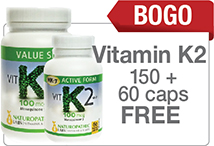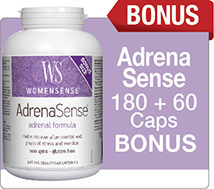Fish Oil: The Best Fish Oil Supplements
Updated Mar. 19th, 2024 | Read Time: 4 Minutes | What You Will Learn:
- Key Health Benefits of Fish Oil
- Fish Oil Source Varieties
- Key Considerations When Selecting Fish Oil Supplements
- Fish Oil Extraction Methods
- Understanding Dosing & Omega Content
- Shopping Tips For Finding The Best Fish Oil Supplement
Not surprisingly, fish oil is made by extracting the oil from certain varieties of fish, so it can be purified for direct supplementation. The best fish oil supplements often use these fish sources: salmon, anchovy, sardine, and mackerel.
There is an incredibly long list of health benefits attributed to fish oil. Most of the research showing the positive effects of omega-3 fatty acids in the diet comes from studies of either high-fish diets or fish oil supplementation. Fish oil has particularly been hailed for its mood-balancing ability and effects in the treatment of mental health conditions, likely due to its high EPA content.
Key Health Benefits of Fish Oil
Fish oil is considered the best source of omega-3 fatty acids, such as EPA and DHA. Omega 3 fatty acids have shown benefits to the cardiovascular and immune systems and the brain and mental wellbeing.
There has been very little research to see if other sources of omega-3 supplementation provide the same health benefits. In particular, it is only fish oil that is responsible for the mental health benefits of omega 3. Doses as low as 1g of combined EPA and DHA have been shown to help reduce and even eliminate conditions such as depression, schizophrenia, ADD, and bipolar disorder. It is the content of EPA that is especially associated with mood-balancing effects, while DHA is associated with proper mental function.
Fish Oil Source Varieties
Fatty fish that are higher on the food chain (eg. Tuna) are generally not used as sources of supplemental fish oil due to the potentially higher concentration of toxins and heavy metals stored in their fat. Deep, cold water fish are the preferred source as they have the lowest levels of contaminants. Very often, supplement companies will give a list of possible fish sources for their oil with a note that oil contents will change with the seasons and with different availabilities of certain fish. Some companies will not list their fish sources at all for this reason. It is often a good idea to take a supplement with a known source so you can be confident of its nutritive and contaminant content.
Key Considerations When Selecting Fish Oil Supplements
The freshness of the fish used to make fish oil is extremely important. Fish that are not fresh create a "fishy" taste and can cause the production of oil that is more difficult to digest, causing the common complaints of "burping up fish" after supplementation. When fish oil is made from fresh fish and extracted properly, the fish taste should be very light and barely perceptible. Fresh fish oil is also less oxidized, and thus can provide more health benefits and will stay fresh longer. Taking a liquid fish oil instead of capsules can ensure that you know, and can taste the freshness of your supplement.
Fish Oil Extraction Methods
Fish oil can be extracted from the fish using a cold press, centrifuge or solvent extraction. Cold press extraction is the best method because the temperature is carefully controlled and the oil removed is less likely to be oxidized. Centrifugation uses the force of spinning the fish in a centrifuge to remove the fat. Centrifuges tend to heat up with the length of use required to extract the oil and this can cause oxidation, which damages the fish oil. Solvents can also be used to extract fish oil, but remnants may remain after processing and be present in your supplement. In general, cold pressing is considered the best possible means of extraction to keep the oil fresh and pure.
Understanding Dosing & Omega Content
Dosage recommendations for omega-3 fatty acids vary depending on the disease process or overall goal. If your goal is to lower your triglyceride level, for instance, it is recommended you consume 3-4 g/day, whereas studies aimed at treating depression found that only 1 g of EPA/day showed better results than higher dosages of 2 and 3 grams. It is important to know that whatever dose you are recommended, you need to be sure your supplement contains the right stuff. On the bottle, you will see the total omega content, as well as the specific contents of DHA, EPA, etc. If you have been advised to take 2 g of EPA + DHA/day, make sure you are looking at the breakdown and that you are following these numbers, rather than looking at the "total omega" content.
Shopping Tips For Finding The Best Fish Oil Supplement
Fish oil supplements have become widely available, so it is very important to ensure that you are getting the best possible one. Use a trusted brand that lists the fish sources used, and clearly states the content of EPA and DHA. Most liquid capsules of fish oil cannot contain a large enough dose, such that to get the doses listed above, you may have to take anywhere from 6 – 20 caps a day. Taking a liquid can easily bypass this problem. Liquid fish oils come in a variety of flavours, making them quite simple to supplement. Doses are generally between 1tsp and 1Tbsp daily to achieve the desired EPA+DHA content.























Fish oil, or a combination of various fish oils are great to take especially in the winter months when your skin gets really dry and flaky. I like the brands I purchase from National Nutrition as they are reliable. I also take salmon oil capsules which help me as well. Fish oil is really good all around, especially to get vitamin A in a good form.
Hello Roger,
Omega 3 is a great way to support skin health as well as internal and cognitive as well. Omega's support the skin by locking in hydration, supporting the protective outer layer of the epidermis and slowing signs of aging. We're glad you've found brands on our site that your trust and enjoy as well as are learning more about the supplements you take with our articles. You may enjoy this one on the other types of omega's as well:
https://www.nationalnutrition.ca/articles/supplements/omega-6/
https://www.nationalnutrition.ca/articles/supplements/supplement-articles-omega-7/
https://www.nationalnutrition.ca/articles/supplements/omega-9/
Have a healthy day!
Wow, this article was so informative on Fish Oil!
We have been taking Fish Oil for many years, however, I have always been confused about EPA and DHA. This article explains it in an easy to understand manner!
It's interesting to learn that fish oil and high EPA content has a mood balancing ability and can potentially help with the treatment of mental health conditions.
Finally, this article reinforces that liquid fish oil is the way to go, to avoid the burpy fishy taste and for maximum freshness.
Thanks for such a great article!
Hello Angela,
Indeed, fish oil is a great way to support cognitive health and helps against mental health issues as well as age related degeneration. Omega 3 is an important part of a healthy lifestyle and also supports skin and gut health too. Flavoured liquid supplements can help with avoiding the fishy aftertaste, some of our favourites are Nutra Sea Juicy Citrus and Naturopathic Labs Lemon flavoured oil. If you'd like to learn more about supplements that support cognitive health, you will enjoy our article here:
https://www.nationalnutrition.ca/articles/health-concerns/brain-health-concentration/
Stay healthy & well
Fish oil is supposed to be a really good supplement that one should take for various reasons. Firstly, it has omega 3 which is good for general health and also gives you Vitamin A. I find fish oil as part of my daily vitamin regime helps to keep my skin moisturized from the inside. Also, it is good to take fish oil especially in the cold season. I take 1000 mg of fish oil or a combo of fish oils e.g. salmon, mackerel etc. Good article with all info.
Hello Roger,
Indeed, Fish oils have many benefits beyond cognitive support. Skin health is definitely one of them! We're glad you enjoyed learning more about a supplement you already love.
If you'd like to learn more about skin health, check out our skin article here:
https://www.nationalnutrition.ca/articles/health-concerns/skin-health/
Stay well!
Very interesting article about fish oils. It was great learning about the different extraction methods and which ones work the best. I have been using fish oils for a few months now and never thought to look at things like extraction or fish oil form to determine whether the fish oil that I'm taking is good or not. I will definitely be looking out for these things in the future when buying fish oil. As always, very good article with loads of useful information, thanks NN!
Hello,
You're welcome, we're thrilled you've been enjoying our articles. Have you checked out our healthy recipes yet?
https://www.nationalnutrition.ca/articles/healthy-recipes/
We think you'll love them!